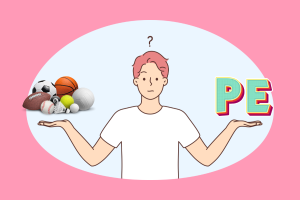The need for caffeine
January 13, 2016
According to a recent survey done by Heath Research Funding, the United States is the country with the highest amount of caffeine consumption with 54 percent of Americans consuming caffeine on a daily basis. In addition, 68 million Americans drink three cups of coffee every single day.
Caffeine is classified as a central nervous system stimulant, which means it causes increased alertness and causes a temporary energy boost. Once a person begins drinking a caffeinated beverage, it takes about 10 minutes for the caffeine to enter their system. However, caffeine does not remain in a person’s system for very long.
“Caffeine exits the body fairly quickly, about 75% is removed from your system within 8-10 hours,” said health teacher Lauren Coffey.
Therefore, in order to maintain energy, some people feel the need to continue drinking caffeine throughout the day by having multiple cups of coffee per day or resorting to energy drinks.
The recommended amount of caffeine intake for adults is up to 400 milligrams per day, but adolescents and young adults should avoid consuming more than 100 milligrams of caffeine daily.
Caffeine can be found in coffee, tea, soft drinks and even chocolate. According to caffeineinformer.com, on average, a caffeinated five ounce brewed cup of coffee contains roughly 115 mg of caffeine. Some energy drinks, like Monster Energy Drinks can have up to 160 mg in 16 ounces. Soft drinks such as Diet Coke can contain about 50 mg of caffeine in just 12 ounces. Even one ounce of dark chocolate can contain 20 mg of caffeine.
The more caffeine a person drinks regularly, the less sensitive they will be to its effects. People who drink caffeine on a daily basis may need to consume more caffeine in order for the caffeine to take effect.
Drinking too much caffeine, more than 400 mg per day can cause many side effects including nervousness, irritability, increased heart rate, and, more commonly, insomnia.
A person who is susceptible to the effects of caffeine can experience restlessness and sleep problems with even just a small amount of caffeine consumed. 90 percent of high school students who consume caffeine on a daily basis report having issues sleeping. However, not consuming caffeine so late in the day may help sleeping problems.
“If you have trouble sleeping stop taking in caffeine after noon,” said Coffey.
There is a debate of whether a dependence or physical need for caffeine can be classified as an addiction. Though the symptoms a person experiences when stopping caffeine use are less severe than those of a drug or alcohol addiction, withdrawal symptoms do still occur among caffeine consumers.
“Caffeine can create physical dependence, like headaches when the substance is withdrawn, these disappear after 1 to 2 days,” said Coffey. “But it does not cause the behaviors we associate with addiction such as severe withdrawal, including cardiac arrest, or drug/alcohol ingestion secrecy, social isolation and monetary drain.”
Health teacher Maria Henderson feels that caffeine addiction is becoming more prevalent because of more and more people becoming dependent on the consumption of caffeine to get through the day.
“Caffeine is considered to cause a ‘mild addiction’ because it doesn’t cause as much of a severe withdrawal as other stimulants,” said Henderson. “I believe that there is an over-consumption and dependence on caffeine to help alleviate other issues [like sleep deprivation] that could be dealt with in other ways.”
According to WebMD, if a person stops consuming caffeine abruptly, they may experience some symptoms. Though these side effects are not as severe as if a person stopped drug use, they include headache, fatigue, anxiety, irritability, depressed mood and difficulty concentrating.
If a person finds themselves relying on caffeine to get through the day and hopes to stop their dependence, the best way is to slowly cut back and progressively replace caffeinated beverages with decaffeinated drinks such as decaf coffee or water. Taking away caffeine may make a person more tired, however, exercise and getting more sleep can help boost one’s energy.
Caffeine can be helpful when a person is feeling tired or in need of an energy boost, but too much caffeine may have negative effects, so it is important to have in moderation.
“I think it would be beneficial if individuals paid closer attention to how much they consume and when. Try to find additional more healthy alternatives,” said Henderson.







Coffee Critic • Jan 13, 2016 at 11:05 pm
Well written article. It should also be pointed out, though, that coffee from Dunkin Donuts or Starbucks often have extremely high sugar levels in addition to caffeine– the high sugar intake can lead to diabetes and may be as important to consider as possible caffeine addiction.